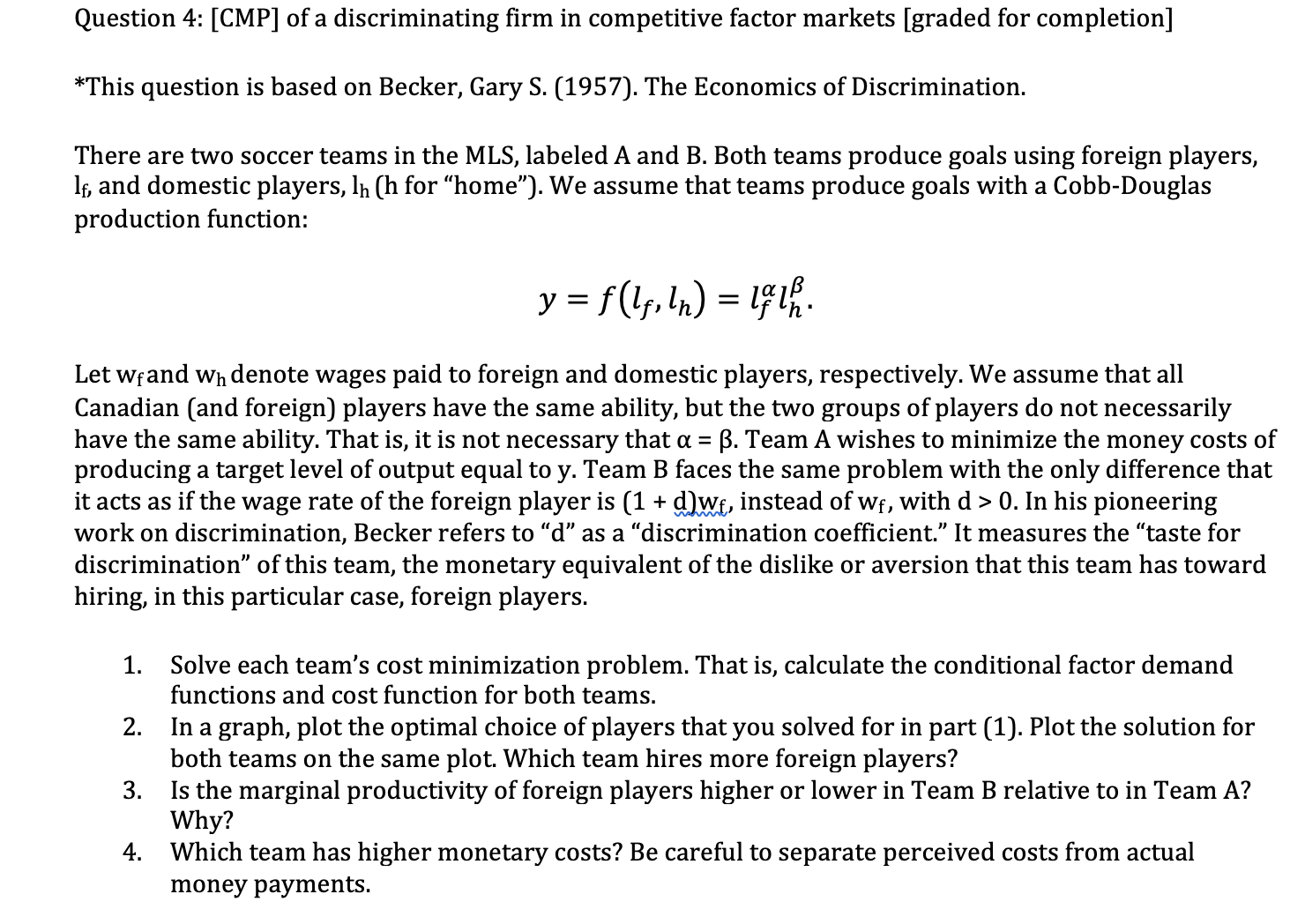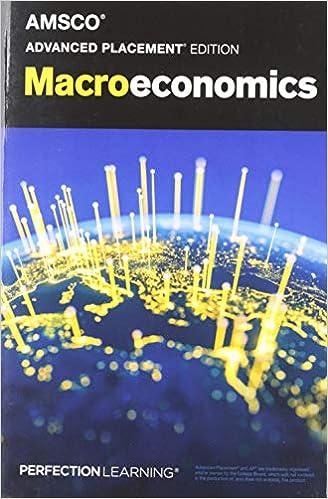Question
Question 4: [CMP] of a discriminating firm in competitive factor markets [graded for comple- tion] *This question is based on Becker, Gary S. (1957). The
Question 4: [CMP] of a discriminating firm in competitive factor markets [graded for comple- tion]
*This question is based on Becker, Gary S. (1957). The Economics of Discrimination.
There are two soccer teams in the MLS, labeled A and B. Both teams produce goals using foreign players, lf, and domestic players, lh (h for "home"). We assume that teams produce goals with a Cobb-Douglas production function:
Let wf and wh denote wages paid to foreign and domestic players, respectively. We assume that all Canadian (and foreign) players have the same ability, but the two groups of players do not necessarily have the same ability. That is, it is not necessary that ? = ?. Team A wishes to minimize the money costs of producing a target level of output equal to y. Team B faces the same problem with the only difference that it acts as if the wage rate of the foreign player is (1 + d)wf , instead of wf , with d > 0. In his pioneering work on discrimination, Becker refers to "d" as a "discrimination coefficient." It measures the "taste for discrimination" of this team, the monetary equivalent of the dislike or aversion that this team has toward hiring, in this particular case, foreign players.
1.Solve each team's cost minimization problem. That is, calculate the conditional factor demand functions and cost function for both teams.
2.In a graph, plot the optimal choice of players that you solved for in part (1). Plot the solution for both teams on the same plot. Which team hires more foreign players?
3.Is the marginal productivity of foreign players higher or lower in Team B relative to in Team A? Why?
4.Which team has higher monetary costs? Be careful to separate perceived costs from actual money payments.

Step by Step Solution
There are 3 Steps involved in it
Step: 1

Get Instant Access to Expert-Tailored Solutions
See step-by-step solutions with expert insights and AI powered tools for academic success
Step: 2

Step: 3

Ace Your Homework with AI
Get the answers you need in no time with our AI-driven, step-by-step assistance
Get Started


